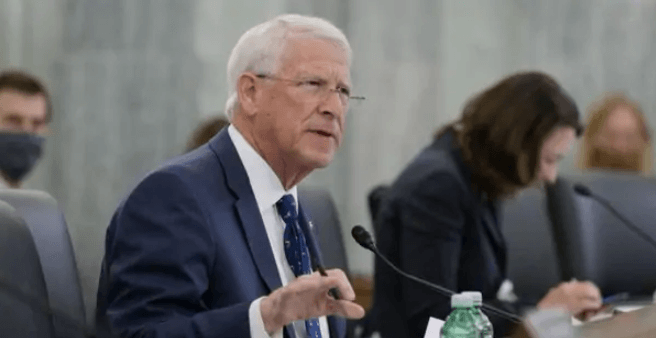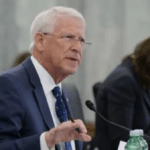Wicker: Commemorates Mississippi’s World War II Heroes
By Sen. Roger Wicker (R-Miss.)
Pascagoula Honored for Its Contributions
When we look back on World War II, Allied victory seems inevitable. But when conflict was raging, defeating the Axis powers was far from a done deal. The outcome undoubtedly depended on our troops. But it took the work of millions across the United States to support them. The National Park Service recently honored Mississippians’ contributions by naming Pascagoula a “Heritage City” to recognize its role in the war effort.
I joined veterans, military leaders, and government officials to celebrate this designation. The event fell between Veterans Day and Thanksgiving, prompting me and our entire state to express gratitude for the ways our soldiers and communities sacrificed to preserve our freedom.
World War II Transformed Pascagoula
Pascagoula was a sleepy fishing village in 1938, when evil tyrants began terrorizing Europe. But when duty called, Pascagoula came to life. Its shipbuilding industry ramped up production, and people migrated to the town to work the yards. Everyday citizens welcomed these newcomers by building them roads, housing, utilities, and schools.
The shipyards got to work at just the right time. German U-boats were swarming the Atlantic, and the British needed fresh resources. Workers at Ingalls sent them the HMS Battler, which helped our friends fend off the Nazis. Eventually, the Navy and the public began to call these vessels “Liberty ships” because they were so effective for the Allied cause.
Pascagoula’s contributions extended beyond the Navy. The Jackson County mill hired 400 more workers to make uniforms for troops. At the Pascagoula Decoy Company, employees switched from making duck decoys to manufacturing paddles and oars. To prevent the Germans from attacking Pascagoula’s shipyards, citizens made their location untraceable by self-enforcing dimming and noise ordinances. Students at local schools raised $117,000 for a plane to transport wounded soldiers. And when the United States entered the war, the town and our entire state sent brave soldiers to the battlefields of Europe, Africa, and the Pacific.
Mississippi Continues Its Heroes’ Legacy
We were honored to have Mississippi veterans in attendance at the Pascagoula event. One way we express our gratitude for their heroism is by continuing the mission they pursued. As America faces increasing threats, Mississippi is a leader in our national defense. Across our state stretches a constellation of military bases, defense manufacturers, and researchers who combine forces to increase our strength.
In Congress, I do everything I can to support the work of these Mississippians and to equip the troops we have stationed around the world. As the top Republican on the Senate Armed Services Committee, I led the drafting of this year’s national defense legislation. Our bill gives troops a well-deserved raise and helps lower housing, healthcare, and childcare costs for military families. It curtails Biden administration efforts to insert divisive social topics into the armed forces. It also strengthens our shipbuilding efforts, which are crucial as we counter China and Russia’s naval power.
The National Park Service’s recognition of Pascagoula reminds me of words from President Ronald Reagan. After meeting with American prisoners of war, the president asked, “Where did we find such men?” He answered his own question, saying, “We found them where we’ve always found them – on the farms, in the shops, in the offices and stores, on the streets, in the towns and cities of America. They’re just the product of the greatest, freest system man has ever known.” During World War II, the soldiers, shipbuilders, and citizens of Pascagoula and our entire state exemplified his words. In our generation, we are called to live up to their legacy and continue to be that great arsenal of democracy.
This article is the weekly Wicker Report of U.S. Sen. Roger Wicker (R-Miss.) and is provided by the Senator’s office.






